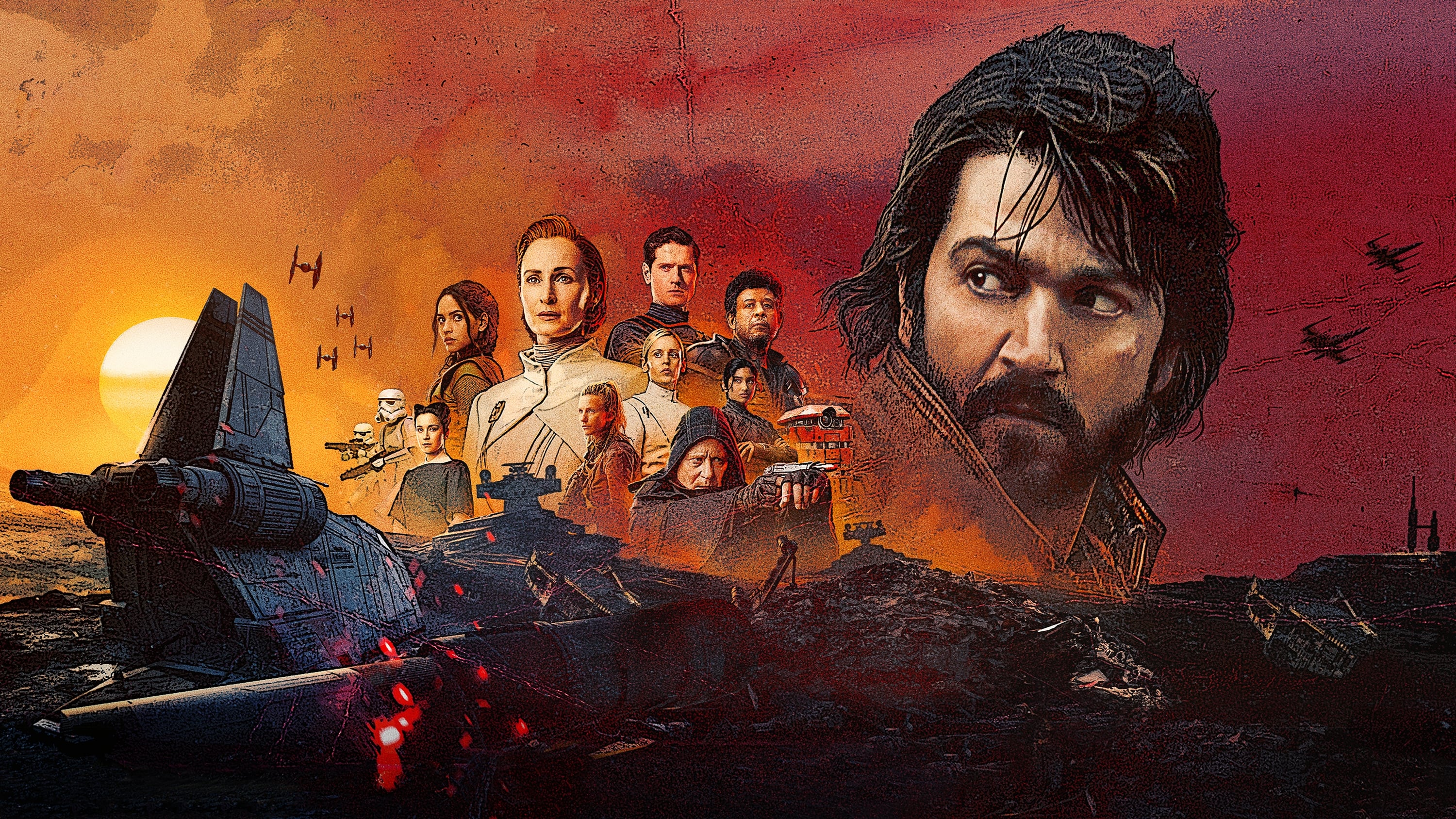AI Concerns Lead To Cancellation Of Star Wars: Andor Novel

Table of Contents
The Role of AI in the Cancelled Star Wars: Andor Novel
While official details remain scarce, rumors suggest AI played a significant role in the aborted Star Wars: Andor novel project. Although the publisher and author haven't publicly confirmed the extent of AI involvement, speculation points towards AI assistance in various stages of the writing process. This could range from AI tools assisting with plot generation and character development to potentially generating substantial portions of the text itself.
- Potential AI Tools: The specific AI tools used remain unconfirmed, but possibilities include large language models capable of generating narrative text, such as GPT-3 or similar technologies.
- AI's Alleged Role: It's speculated that AI may have been used for brainstorming storylines, fleshing out character backstories, or even drafting entire chapters. The level of AI involvement remains the subject of much speculation and debate.
- Lack of Official Confirmation: The absence of a clear statement from the publisher or author regarding AI usage leaves room for conjecture and fuels discussions about the ethical considerations involved.
Publisher's Concerns and the Cancellation Decision
While no official statement explicitly states the reason for the cancellation, the strong suspicion surrounding AI involvement suggests several underlying concerns. The publisher likely grappled with significant challenges related to AI’s role in the creative process. These include:
- Copyright Infringement: A major concern with AI-generated content is the potential for unintentional copyright infringement. AI models are trained on vast datasets, and there's a risk they might inadvertently reproduce existing copyrighted material.
- Quality Control: Ensuring the quality and originality of AI-generated text is another significant hurdle. AI can produce grammatically correct and coherent text, but it might lack the nuance, depth, and emotional resonance of human-written prose. Maintaining the high standards expected of Star Wars literature would be challenging.
- Ethical Considerations: Using AI in writing raises several ethical questions, including authorship credit, the potential displacement of human writers, and the overall impact on the creative process. These concerns likely weighed heavily on the publisher's decision.
- Fan Backlash: The possibility of negative fan reaction to an AI-authored Star Wars novel was also likely a factor. Many fans value the human element in storytelling and may be resistant to AI-generated content.
The Broader Implications for the Publishing Industry
The cancellation of the Star Wars: Andor novel sends ripples throughout the publishing industry. This event serves as a cautionary tale, highlighting the need for careful consideration when integrating AI into the creative workflow.
- Increased Scrutiny: The incident is likely to lead to increased scrutiny of AI usage in publishing. Publishers and authors will face greater pressure to be transparent about the role of AI in their work.
- New Guidelines and Regulations: The incident may accelerate the development of guidelines or even regulations regarding AI in creative writing, addressing issues like authorship, copyright, and ethical considerations.
- Intellectual Property Rights: The use of AI in creative writing raises complex questions about intellectual property rights. Determining ownership and copyright of AI-generated content will be crucial moving forward.
- Impact on Human Authors: The increasing use of AI in writing raises concerns about the future of human writers and their ability to secure employment. A thoughtful approach is necessary to balance the potential benefits of AI with the needs of human creatives.
Conclusion: Navigating the Future of AI and Creative Writing – The Star Wars: Andor Novel Case Study
The cancellation of the Star Wars: Andor novel serves as a pivotal case study, demonstrating the complex ethical and practical challenges posed by AI in creative writing. The incident underscores the need for careful consideration of copyright concerns, quality control issues, ethical implications, and the potential for fan backlash when utilizing AI in the publishing industry. The debate surrounding AI in writing is far from over, and the future of creative writing will likely involve a careful negotiation of the potential benefits and drawbacks of integrating this technology. Let’s continue the conversation! Share your thoughts on the ethical implications of AI in writing using #AIinWriting #StarWarsAI #PublishingEthics. Further reading on the topic of AI and creative writing is readily available online, enabling further exploration of this complex and evolving landscape.

Featured Posts
-
 Can The Padres Beat The Yankees Predicting A Potential 7 Game Winning Streak
May 16, 2025
Can The Padres Beat The Yankees Predicting A Potential 7 Game Winning Streak
May 16, 2025 -
 Vavel Usas Coverage Of Athletic Club De Bilbao In Depth Analysis And Reports
May 16, 2025
Vavel Usas Coverage Of Athletic Club De Bilbao In Depth Analysis And Reports
May 16, 2025 -
 Microsoft Announces Major Job Cuts 6 000 Employees Impacted
May 16, 2025
Microsoft Announces Major Job Cuts 6 000 Employees Impacted
May 16, 2025 -
 Resultados Roma Monza Sigue El Partido En Vivo
May 16, 2025
Resultados Roma Monza Sigue El Partido En Vivo
May 16, 2025 -
 Pesticide Debate Trump Officials Rebuff Rfk Jr S Assertions
May 16, 2025
Pesticide Debate Trump Officials Rebuff Rfk Jr S Assertions
May 16, 2025
